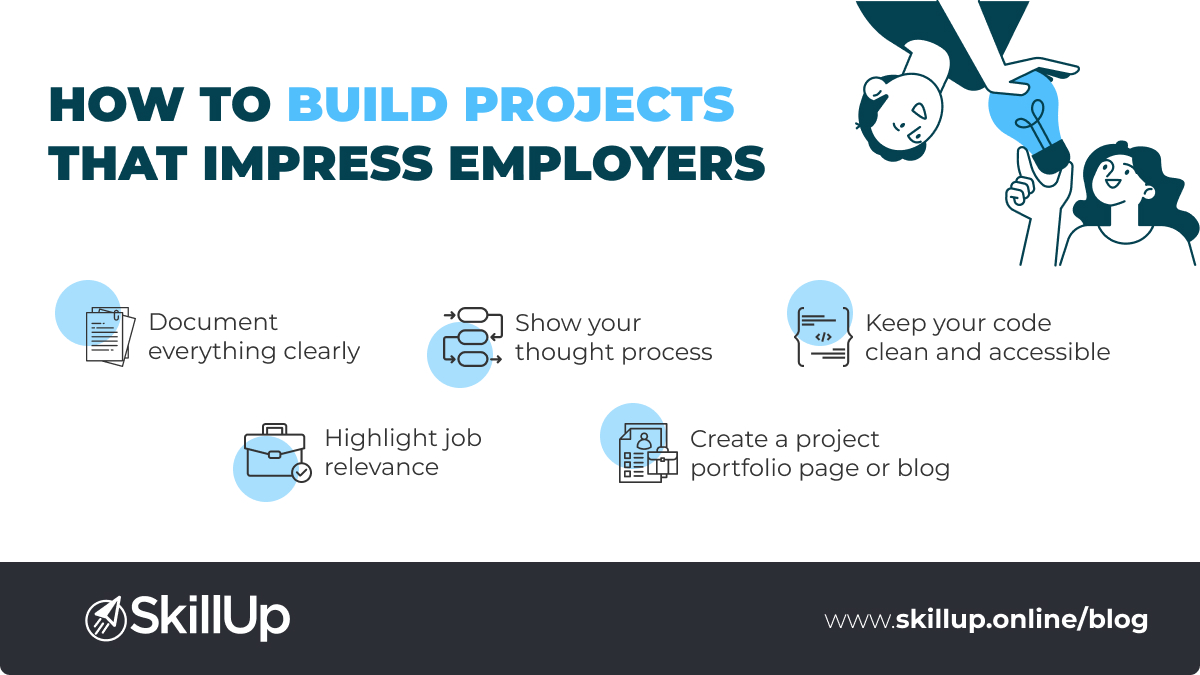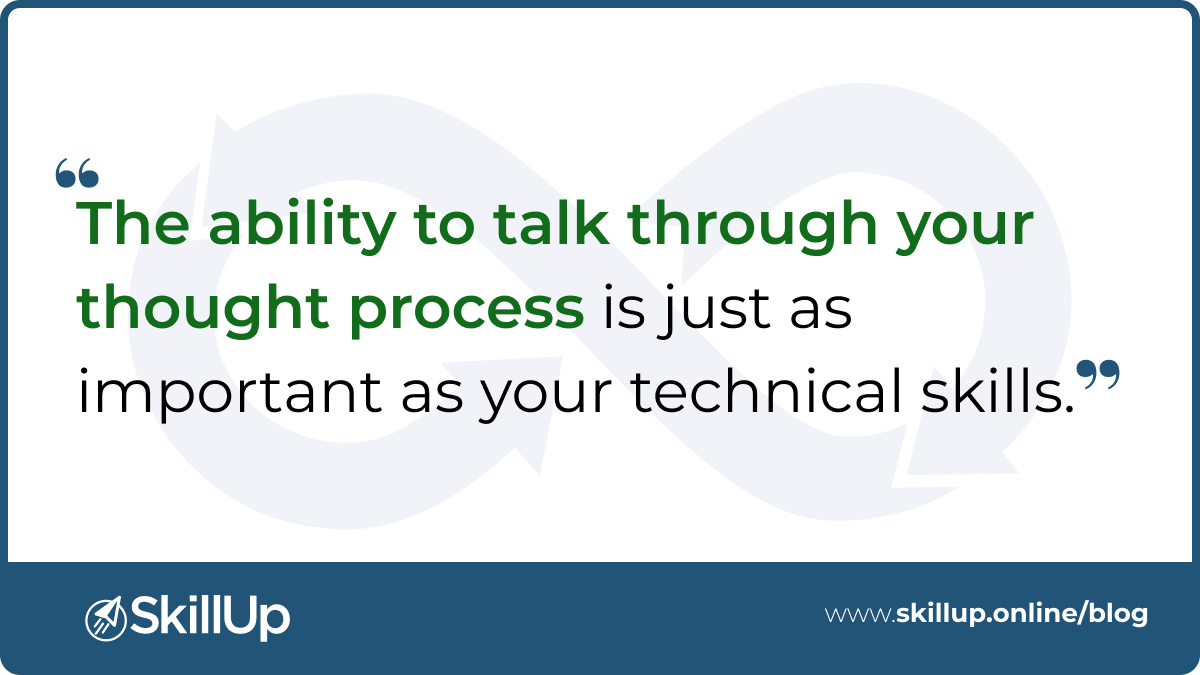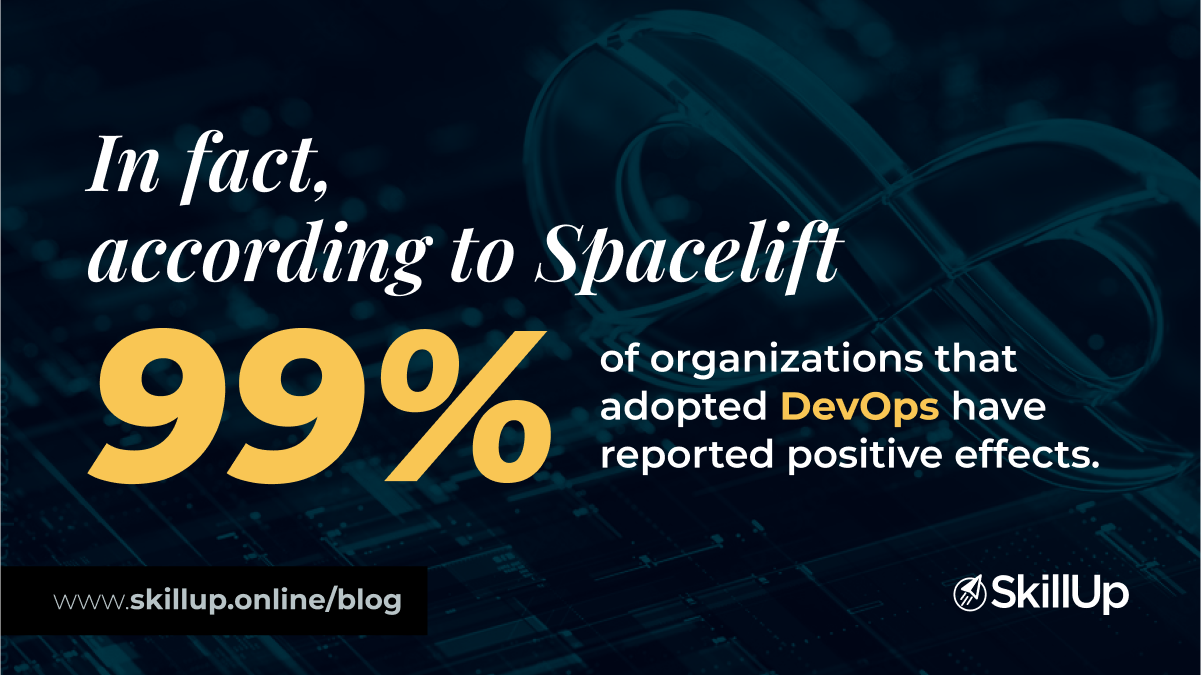Are you looking for a career that will push you to the forefront of innovation in the fast-paced world of technology? If your answer is ‘yes!’, then it’s no surprise you’re looking at DevOps. The field has emerged as a crucial component of the software development life cycle.

According to a global forecast published by MarketsandMarkets, the DevOps market will grow from USD 10.4 billion in 2023 to USD 25.5 billion by 2028, with a compound annual growth rate (CAGR) of 19.7%. This clearly shows phenomenal expansion is taking place. Companies worldwide are looking to allocate resources to the field and, as a result, DevOps engineers are in very high demand.
But this is not a straightforward quest for businesses on the hunt for talented professionals. A good DevOps engineer needs more than just an IT or science degree to get going. Instead, recruiters are hunting for professionals with a specific blend of technical skills, soft skills, knowledge, and hands-on experience. There’s a lot to the role.
What is DevOps?
But before we explore this further, let’s quickly clarify what we’re talking about here. DevOps is a collaborative approach that combines development and operations teams to streamline software delivery. It emphasizes communication, automation, and continuous feedback. By integrating processes and leveraging automation tools, DevOps enables faster and more reliable software releases, improved collaboration, and efficient infrastructure management. Plus, it promotes a culture of continuous learning and improvement, driving innovation and agility in software development.
What does a DevOps engineer do?
A DevOps engineer plays a crucial role in modern software development, bridging the gap between development and operations teams. As a DevOps engineer, your job is to create and maintain a smooth and efficient software delivery pipeline. You are the master of automation, driving the adoption of best practices and tools that enhance collaboration and streamline processes.
Here are some of the key roles and responsibilities of a DevOps engineer:
- Automating and streamlining the software development and deployment processes.
- Designing, implementing, and managing the tools and infrastructure required for efficient software delivery, such as continuous integration/continuous deployment (CI/CD) pipelines, configuration management systems, and monitoring systems.
- Working closely with development teams to ensure that applications are built with scalability, reliability, and security in mind.
- Collaborating with operations teams to maintain stable and efficient production environments, troubleshoot issues, and optimize system performance.
Additionally, DevOps engineers focus on implementing and promoting DevOps culture and best practices within the organization. They advocate for collaboration, knowledge sharing, and continuous improvement. By breaking down silos, improving communication, and fostering a culture of automation and collaboration, DevOps engineers help organizations achieve faster software delivery, increased efficiency, and improved customer satisfaction.
What skills does a DevOps engineer need?
To become a successful DevOps engineer you need to have strong technical and human skills. This means that recruiters are on the lookout for many things when they’re reading a resume. Some of the important skills they’re looking for include:
- Configuration management: Proficiency in tools such as Ansible, Puppet, or Chef for automating infrastructure provisioning and configuration.
- Containerization and orchestration: Knowledge of Docker and Kubernetes for managing scalable and resilient deployments.
- Cloud computing: Experience with AWS, Azure, or GCP to deploy and manage cloud-based infrastructure.
- Continuous integration and deployment (CI/CD): Familiarity with tools like Jenkins, GitLab CI/CD, or Azure DevOps for automating software delivery.
- Infrastructure as code (IaC): Proficiency in Terraform or CloudFormation for managing infrastructure resources using code.
- Monitoring and logging: Understanding of monitoring tools like Prometheus and Grafana, and log management solutions like ELK Stack or Splunk for observability and troubleshooting.
- Scripting and programming: Knowledge of scripting languages like Bash or Python, and programming languages such as Java or C#, for automation and tool-building.
- Networking and security: Understanding of networking protocols, security best practices, and tools like firewalls, VPNs, or IDS for ensuring secure and reliable infrastructure.
In addition to technical skills, however, DevOps engineers also need strong human or “soft” skills to be effective in their roles. These include:
- Communication: Effective communication is crucial for DevOps engineers as they work closely with various teams, including developers, operations, and management
- Collaboration: As a DevOps engineer, you need to work collaboratively with other teams to ensure smooth and efficient software delivery.
- Problem-solving: DevOps engineers need to be skilled troubleshooters who can resolve issues that arise in the development and deployment processes.
- Adaptability: The DevOps field is constantly evolving. DevOps engineers should possess the ability to learn new tools and technologies to keep up with the fast-paced environment.
- Leadership: DevOps engineers often take a leadership role in their teams and therefore need good leadership skills.
How to catch the attention of a recruiter
So, with all that said, how do you actually catch the eye of a recruiter as they scan your resume? Here are some top tips:
- Build a strong online presence: Recruiters often search for potential candidates on social media platforms like LinkedIn, so it’s essential to have a strong online presence. Make sure your profile is up-to-date and highlights your skills and accomplishments.
- Showcase your projects and contributions: Create a portfolio or personal website to showcase your projects, contributions to open-source projects, and any relevant work samples.
- Contribute to open-source projects: Contributing to open-source projects is an excellent way to showcase your skills and demonstrate your commitment to continuous learning and professional development. For instance, you can find open-source projects on websites like Up For Grabs, CodeTriage, GitHub, etc.
- Personalize your application: Tailor your resume and cover letter to highlight your relevant skills and experiences that align with the specific job requirements.
- Demonstrate continuous learning: Stay updated on the latest trends, tools, and technologies by attending webinars, workshops, and online courses. Highlight any relevant certifications or training programs you have completed on your resume and LinkedIn profile.
- Highlight soft skills: In addition to technical expertise, soft skills are highly valued by recruiters. Effective communication, problem-solving abilities, teamwork, adaptability, and leadership skills are all essential for success as a DevOps engineer.
Include relevant key words in your resume
In today’s job market, it’s crucial to optimize your resume by incorporating relevant keywords. Many job portals now utilize Applicant Tracking System (ATS) software, which filters resumes based on the keywords provided by recruiters. These keywords typically represent the essential skills required for the job. By including specific keywords associated with the job profile you’re applying for, you can enhance your visibility to recruiters and increase your chances of having your resume shortlisted. For example, if you’re seeking a DevOps engineer position, it’s important to include keywords such as AWS, Azure, Google Cloud, Kubernetes, CI/CD, Jenkins, Terraform, and more.
Strike the right balance in your interview
Then, when it comes to the interview stage, it’s crucial to strike a balance between showcasing your technical expertise and making a strong initial impression. Recruiters often seek specific introductions from candidates based on the job profile. One widely accepted approach is to allocate around 90% of your introduction to highlighting your skillset, work experience, educational background, certifications, and related aspects. The remaining 10% can touch upon your family background and general information. This formula ensures that you emphasize your professional qualifications while still providing some personal context.
How to get the right certifications
There’s a common misconception that an IT or computer engineering degree is enough to break into this field. However, that’s not the case. Recruiters are looking for professionals who are well-equipped with the required skills and have demonstrated practical experience. One way to acquire the necessary skills and experience is through certifications. By enrolling in certification courses, you not only gain valuable skills but also receive hands-on training that can significantly enhance your resume and set you apart in the competitive job market.
To start with, it’s good to choose a platform and build your knowledge that way. There are various platforms you should look at, including AWS, Microsoft Azure, and Google Cloud Platform. You should also opt for a certificate course in one of the popular programming languages, such as Java, Microsoft PowerShell, Puppet, SQL, etc.
Another popular career path to follow is to get a thorough understanding of Python. Once you’ve mastered it, you can dedicate some time to a specific platform such as Microsoft and skill up on the AZ-900 Microsoft Azure Fundamentals, followed by AZ-204 Developing Solutions for Microsoft Azure, and then AZ-400 Designing and Implementing Microsoft DevOps Solutions.
After you’ve successfully completed such certifications, it’s important to then build your skills in various DevOps tools such as CI/CD with Jenkins, containerization with Docker, container orchestration with Kubernetes, Ansible, infrastructure provisioning using Terraform, and DevOps monitoring tools.
Now, this might all sound like a lot of learning, but in truth if you work in DevOps, you will always be developing skills in new technologies as they arrive. So, it’s worth embracing that idea from the start.
Next steps for you
As you can see, if you are planning to become a DevOps engineer, then you have a lot to look at. However, equally so, you have a lot to look forward to. Opting for some of the certifications mentioned can help you build the right DevOps skills and a rewarding career and salary. With notable certifications and practical expertise under your belt, you can then thrive and make an impact as a skilled DevOps engineer.
If you would like to know more about how you can build skills and get started as a cloud security professional, contact our Learner Support Team at [email protected]. They will be more than happy to guide you on the next steps you can take.
The Placement Team
SkillUp Online




